Iran says army helicopter missile systems upgraded
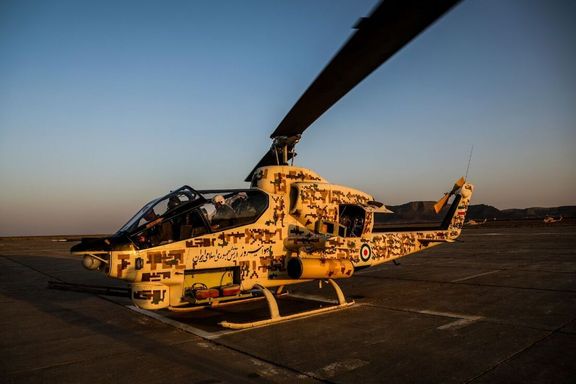
Iran’s army aviation commander said on Saturday that the range and accuracy of the military’s helicopter-launched missiles have significantly improved, with all components now locally produced.

Iran’s army aviation commander said on Saturday that the range and accuracy of the military’s helicopter-launched missiles have significantly improved, with all components now locally produced.
Brigadier General Ghasem Khamoushi, commander of the Islamic Republic’s Army Aviation (Havanirooz), said Iran has developed precision-guided and long-range missiles domestically and expanded the operational capabilities of its helicopters to include night missions using indigenously developed night-vision systems.
“Missile range has increased more than sevenfold, and targeting systems have become significantly more precise,” he told reporters during a ceremony marking the anniversary of the 1982 liberation of Khorramshahr during the Iran-Iraq war.
The city, taken by Iraqi forces early in the war, was retaken by Iran during Operation Beitol-Moqaddas in what is considered a turning point in the war.
Khamoushi added that key helicopter parts, previously affected by sanctions, are now produced in Iran using domestic expertise and knowledge-based companies. The advances, he said, will be formally unveiled in the coming weeks.
Khamoushi also said that Iranian helicopters, once limited to daytime operations, are now equipped to conduct missions in complete darkness, thanks to technological upgrades and locally developed equipment.
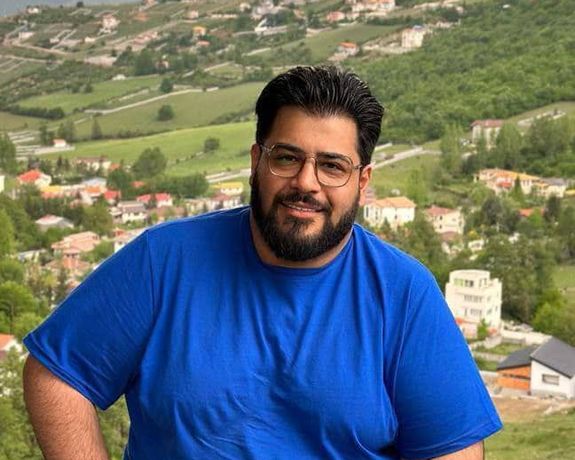
Iran late last month executed a young man accused of helping Israel carry out assassinations and bomb attacks, but a prominent activist, human rights groups and a leaked call from the condemned prisoner indicate the charges were false.
Mohsen Langarneshin, a 32-year-old network security engineer, was executed in Ghezel Hesar Prison on April 30 on charges of “waging war against God” and “spreading corruption on Earth,” according to the judiciary’s media outlet Mizan.
Beyond vague headlines in state-controlled outlets, few details of his background and case were publicly available. But rights activist Ryma Sheermohammadi and sources close to Langarneshin told Iran International that the case was fabricated, his trial deeply flawed and confessions he made were extracted under torture.
Iranian authorities were so keen to round up suspects amid serial Israeli intelligence breaches, Sheermohammadi said, that they accused him of being involved in the death of a top missile general they have publicly insisted died by accident.
“This case was manufactured,” Sheermohammadisaid. “He was executed on charges of espionage without a shred of material evidence. The case was built entirely on forced confessions extracted under extreme physical and psychological torture.”
“Mohsen was an easy target for them. They tortured him to gain confessions out of him and he didn’t even tell anyone and fell for their lies that they would spare his life if he complied,” a source close to Langarneshin told Iran International.
Accidental blast
According to Sheermohammadi, Langarneshin was accused of involvement in three high-profile incidents: the 2011 explosion that killed the architect of Iran’s missile program Brigadier General Hassan Tehrani Moghaddam, the 2022 assassination of Colonel Hassan Sayyad Khodaei in Tehran and a 2023 bombing at a munitions factory in Isfahan.
Tehrani Moghaddam, a brigadier general in the Islamic Revolutionary Guard Corps (IRGC), played a central role in developing Iran’s long-range missile arsenal and was widely regarded as the father of Iran’s missile program.
In 2011, he died alongside over a dozen others in a blast west of Tehran - a huge blow to Iran's military establishment but one officials conceded was an accidental detonation during weapons testing.
“At the time (of Tehrani Moghaddam's death), Mohsen was just 19 years old and had no known link to the incident,” Sheermohammadi said.
Sheermohammadi also dismissed allegations tying Langarneshin to the 2022 assassination of Quds Force officer Sayyad Khodaei.
“In the 2022 assassination of Colonel Sayyad Khodaei, Mohsen was accused of conducting surveillance using a motorcycle,” she said. “But he was living in Isfahan at the time, not Tehran, and there is extensive documentation — CCTV footage, phone records, vehicle ownership — proving his absence from the crime scene.”
Langarneshin was also accused of being involved in a 2023 bombing in Isfahan. “But Mohsen had already moved to Tehran well before the incident,” she said. “Again, workplace footage and telecom records confirm this. Another individual was arrested and executed for that very bombing, which raises serious questions about duplicated or fabricated charges.”
Langarneshin had previously worked under contract as a network security engineer at Imam Hossein University, a US-designated military-linked institution controlled by the IRGC that trains specialists in cyber defense, intelligence and missile technology.
“Mohsen had a brief professional association with Imam Hossein University — an IRGC-affiliated institution,” Sheermohammadi said. “That link gave intelligence agencies just enough of a pretext to cast suspicion on him, years later.”
But she said his affiliation ended after 2019 protests which started over fuel price hikes but quickly turned political. They were quashed by authorities with deadly force.
“Mohsen made a principled decision to resign from the university following the bloody crackdown on protesters in November 2019,” she said. “He could no longer, in good conscience, be affiliated with institutions tied to state violence. That act of integrity may have marked him as politically unreliable in the eyes of the regime.”
Sheermohammadi believes Langarneshin was ultimately targeted not for what he did, but his profile fit what investigators were seeking in a defendant.
“The intelligence services were under pressure to deliver ‘results,’ especially in cases involving alleged foreign plots,” she said.
“Mohsen’s international travel history, financial independence through his car business, and technical expertise all made him an easy target — someone who could be cast into a ready-made narrative of espionage, even when the evidence said otherwise.”
Call from Evin Prison
In a recorded phone call from Evin Prison, a copy of which was obtained by Iran International, Langarneshin described being psychologically tortured in a Ministry of Intelligence safehouse the night of his arrest.
His captors, he said, threatened him with flogging, forced him to write false confessions and later filmed him admitting to his alleged crimes based on their cues.
“They told me to say I bought a motorbike, mounted a camera on it and went to film,” he said in the call. “That was very odd — there was never any mention of what kind of motorbike it was or where it came from. I never did that. They made me say it anyway.”
After resisting, he said he was blindfolded, chained in a schoolyard, and filmed again. “They said, ‘This video is for before your execution. If you read the confession we wrote, maybe we’ll change your sentence to life imprisonment.’”
Judge Abolghasem Salavati of Tehran’s Revolutionary Court—referred to by dissidents as the “hanging judge” for his record of issuing numerous death sentences in politically sensitive cases—and upheld by the Supreme Court.
All three retrial requests were rejected — the last one dismissed within two days and without explanation.
His father, Massoud Langarneshin, released a video the day before the execution, calling the case “full of flaws, ambiguities and questions.” His mother also confirmed she had her final visit with Mohsen that same day and appealed for help.
Several human rights groups including Norway based rights group Iran Human Rights (IHR) condemned the hanging, which IHR said took place alongside several other prisoners," said IHRNGO Director Mahmood Amiry-Moghaddam.
“We must raise the cost of these extrajudicial killings for the authorities through strong international reactions and widespread protest.”
Sheermohammadi said Iranian authorities refused to tell Langarneshin family where he was buried and had forced them to delete all their social media posts.
“Mohsen’s family is being forced into silence by intelligence agents. They have been told not to speak to the media about Mohsen. Only if they obey the conditions set by the intelligence agents are they willing to disclose his burial site,” another source told Iran International.
After eleven days of uncertainty, Sheermohammadi confirmed that Langarneshin had been buried in Behesht Zahra cemetery in south Tehran, alongside other executed political prisoners.
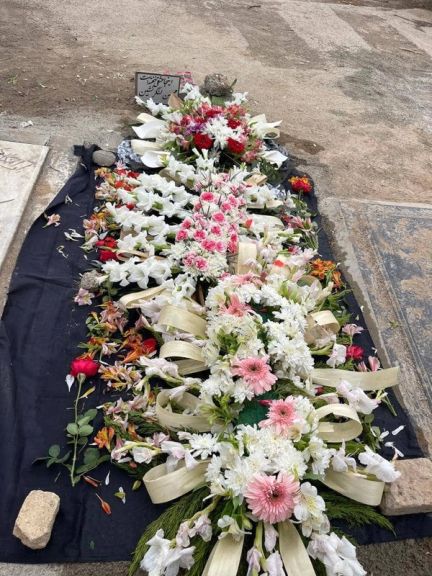
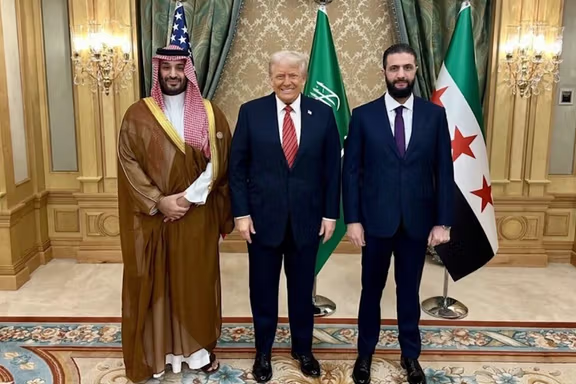
President Donald Trump’s tour of Arab capitals this month aimed to draw a contrast between their pro-Western, prosperity-driven policies and Tehran's Islamic ideology and opposition, former Palestinian peace negotiator Ghaith al-Omari said.
As Arab states astride the Persian Gulf prosper, Iran remains mired in grievance, repression and decline, according to former Palestinian peace negotiator Ghaith al-Omari on Eye for Iran.
“The Persian Gulf is non-ideological. Their leaders say, ‘My job is how to make life better for my people.’ This is completely incompatible with the ideological mindset—including in Iran,” al-Omari said.
As Saudi Arabia and the UAE surge ahead—reimagining their economies and societies—Iran clings to a narrative rooted in the past.
“What is the narrative coming from the Iranian regime? It’s a narrative of grievance... rooted in the past, in both past grievances and past glory... not a view of prosperity.”
Al-Omari said the Middle East is undergoing a seismic shift, with Persian Gulf countries becoming the “center of gravity” in the region—and Trump recognizing and seizing that opportunity.
Decades of neglect
During his speech at the US-Saudi Investment Forum in Riyadh on May 13, 2025, President Trump drew a sharp contrast between the trajectories of Saudi Arabia and Iran. The president anccused Iran’s leadership for mismanaging the country and funding terrorism, while praising the transformation of its neighbors.
“Iran's decades of neglect and mismanagement have left the country plagued by rolling blackouts lasting for hours a day. All the time, you hear about it. While your skill has turned dry deserts into fertile farmland, Iran's leaders have managed to turn green farmland into dry deserts, as their corrupt water mafia—it's called the water mafia—causes droughts and empty riverbeds,” said Trump.
His remarks resonated with many Iranians, long critical of Tehran's failures. The speech reinforced a new US posture in the region—one that rewards progress and punishes destabilization.
Trump’s Persian Gulf tour also produced sweeping economic and defense agreements.
A $142 billion arms deal was signed, the largest defense cooperation agreement in US-Saudi history. It includes cutting-edge warfighting technology and signals a shift in US strategic posture.
Saudi Arabia committed to investing $600 billion in the United States across energy, defense, mining, and other sectors.
Taken together, these moves represent a strategic pivot: away from traditional diplomacy, and toward a model focused on mutual economic and security interests.
And one in which Iran—after its unprecedented direct missile attack on Israel last year—is increasingly isolated and weakened.
Even Syria adapts—leaving Tehran more isolated
Even Syria—long seen as a spoiler in regional affairs—is signaling a shift.
"Syria has been a spoiler in the region since the 1970s," said al-Omari. "Now Syria is not a spoiler."
Trump's outreach to Damascus, despite its authoritarian legacy, underscores the extent to which even old adversaries are repositioning themselves in a changing Middle East. As others pivot toward stability and integration, Tehran's confrontational stance risks leaving it behind.
Qatar
Qatar was also a focal point of Trump’s tour.
Qatar Airways agreed to purchase up to 210 planes from Boeing. Trump described it as “the largest order of jets in the history of Boeing.”
He also accepted a Boeing 747-8 aircraft from the Qatari government, valued at roughly $400 million. Trump said it would be “stupid” to turn it down, framing it as a donation to the US Department of Defense, not for personal use. The move sparked backlash, even among Trump’s own supporters.
Al-Omari criticized Qatar’s influence strategy, noting its financial clout and controversial alliances.
“Qatar is a very problematic actor. Qatar has been the supporter of Hamas, the supporter of Muslim Brotherhood, the supporter of disruption throughout the region.”
He added that while Persian Gulf countries all have relations with Iran, “Qatar has partnership with Iran in many ways. That’s different.”
Trump made headlines when, during a state dinner in Doha, he said: “Iran should say a big thank you to the Emir, because he's fighting for them.”
He also reportedly asked the Qatari government to push Iran toward a nuclear deal.
“The Qataris like these problematic relations to be behind the scenes, to be hush-hush," said al-Omari on Eye for Iran, "Trump being Trump, he doesn't like to play this subtle behind the scenes game. He says it as it is."
A new era of American diplomacy
Al-Omari said Trump’s approach marks a sharp departure from previous presidents like Barack Obama.
“Trump sees the region through a transactional lens. Obama focused on moral lectures. Trump prefers investment and deals—but keeps military options on the table, especially when it comes to Iran.”
The administration wants Iran to integrate into this future-oriented regional order—but warns of consequences if it doesn’t.
“There’s an opportunity for Iran if it wants to take it,” said al-Omari. “The region is changing—but not at any price.”
You can watch the full episode of Eye for Iran featuring Ghaith al-Omari on YouTube or listen on any major podcast platform like Spotify, Apple, Amazon Music or Castbox.
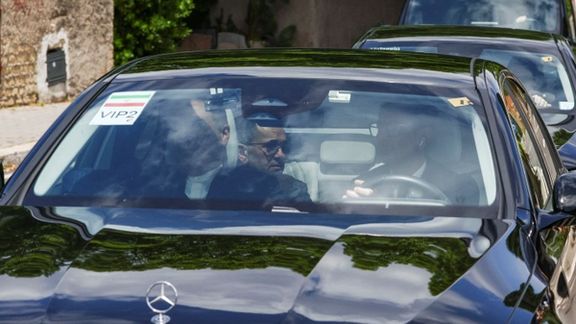
The Iranian negotiating team has been instructed not to proceed with any talks that include proposals to halt or reduce uranium enrichment to zero, Iran International has learned.
According to information obtained by Iran International, a formal directive was issued to the delegation ahead of the fifth round of indirect negotiations with the United States in Rome.
The order said any discussion of ending enrichment is off-limits, and negotiators are required to reject such proposals outright.
Foreign Minister Abbas Araghchi’s televised interview, aired the night before the talks began, was part of this coordinated approach.
The appearance, organized in consultation with the Supreme National Security Council and the sanctions negotiations committee, aimed to publicly reinforce Tehran’s red lines and manage expectations over a possible failure of the Rome talks.
The messaging also sought to frame the US as responsible should the talks collapse, by emphasizing Iran’s refusal to abandon what it views as its core nuclear rights.
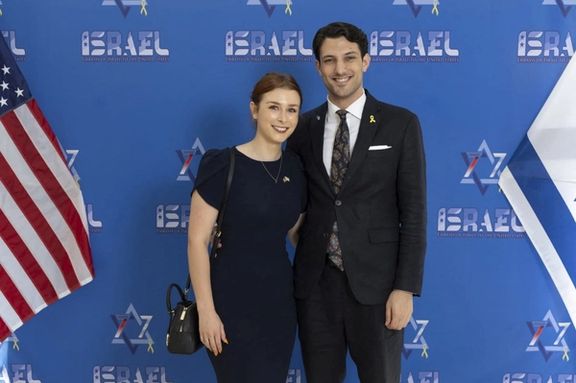
Yaron Lischinsky, one of two Israeli embassy employees killed in a shooting outside the Capital Jewish Museum in Washington, had publicly expressed solidarity with the Iranian people and participated in events supporting democracy in Iran.
Lischinsky, who served as a Middle East affairs advisor at the Israeli embassy in Washington, was killed alongside his fiancée, Sarah Lynn Milgrim, by a lone gunman who opened fire on a group leaving a diplomatic event on Wednesday night.
A suspect, identified by police as 30-year-old Elias Rodriguez of Chicago, was taken into custody shortly afterward. Video footage shows him shouting "free free Palestine" after his arrest as police took him into custody.
The Israeli Foreign Ministry confirmed that both victims were locally employed staff members who had been active in cross-cultural dialogue and reconciliation efforts.
In previous posts on the social media platform X, Lischinsky had voiced support for the people of Iran, distinguishing them from the Islamic Republic. In a Nowruz message last year, he wrote: "The people of Iran are not our enemies. We wish them all the best and hope that one day peace will return."
Lischinsky had also participated in a conference organized by the National Union for Democracy in Iran (NUFDI), a US-based advocacy group, where he was seen in photos alongside Iranian opposition figures. One image shared from the event included a flag bearing the historic Lion and Sun emblem of Iran.
The shooting occurred just over a mile from the White House and has been described by Israeli and US officials as a targeted act of violence. Security around Israeli diplomatic facilities worldwide has since been heightened.
Lischinsky, originally from Bavaria, Germany, was remembered by colleagues and community members as a committed and empathetic figure who worked to build bridges in the Middle East.
Authorities continue to investigate the motive behind the attack, with the FBI investigating possible hate crime or terrorism motives though no formal terrorism charges have been announced.
FBI Deputy Director Dan Bongino wrote on X "Early indicators are that this is an act of targeted violence. Our FBI team is fully engaged and we will get you answers as soon as we can, without compromising additional leads."
Mayor Muriel Bowser told reporters, "We will not tolerate antisemitism ... the FBI's role, of course, as always when there is any possibility of a terrorist act, or acts motivated by hate or other bias, the FBI will be conducting those investigations."
The incident comes amid rising concerns about hate crimes linked to the Israel-Gaza conflict. Human rights groups have reported increased incidents of both antisemitic and anti-Arab violence in the United States since October 2023.
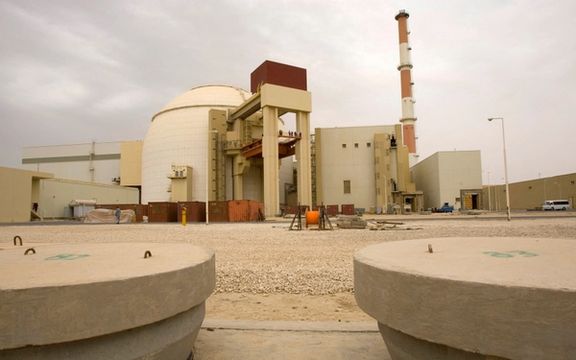
Iranian Foreign Minister Abbas Araghchi has called on the United Nations to respond to Israeli threats against Iran’s nuclear facilities, warning that Tehran will take “special measures” to defend its infrastructure if necessary.
In a letter to UN Secretary-General António Guterres, the UN Security Council president, and International Atomic Energy Agency (IAEA) chief Rafael Grossi, Araghchi cited a recent CNN report that said US intelligence indicates Israel is preparing for possible attacks on Iranian nuclear infrastructure.
“Iran will take all necessary measures to protect and defend its citizens, interests, and facilities against any terrorist or sabotage actions,” Araghchi wrote. “As in the past, we strongly warn the Israeli regime against any adventurism, and Iran will respond decisively to any threats or violations.”
A CNN report this week cited US intelligence officials quoted as saying military movements had been observed suggesting a potential attack on Iran's nuclear facilities in addition to intercepted communications.
Araghchi added that Iran considers the United States responsible for any potential Israeli attack, understanding that any such operation would need the tacit approval of Washington. “In the event of any strike against Iran’s nuclear facilities, the US government will share responsibility,” he said.
Araghchi reiterated Iran's position, in which it maintains that its nuclear program is peaceful and fully under IAEA monitoring, and cited multiple UN and IAEA resolutions prohibiting attacks on civilian nuclear infrastructure.
He warned that, in light of ongoing threats, “the Islamic Republic of Iran will be compelled to adopt special protective measures for its nuclear facilities and materials,” with details to be shared with the IAEA in due course.
Araghchi flags US intel leak on Israeli threats 'alarming'
Following the letter, Araghchi reiterated his message in a post on X, calling it a “serious pre-action warning.”
“Threats from the rogue Israeli regime are nothing new,” he wrote. “But the recent leak citing US officials as divulging Israeli plans for an unlawful attack on Iran and its nuclear facilities is alarming and warrants immediate and serious condemnation from the UN Security Council and the IAEA.”
He added: “The nature, content, and extent of our actions will correspond and be proportionate to preventive measures taken by these international bodies.”
Separately, Iran’s Revolutionary Guards warned that Israel would face a “devastating and decisive response” if it attacked Iran. “They are trying to frighten us with war but are miscalculating, as they are unaware of the powerful popular and military support the Islamic Republic can muster in war conditions,” Guards spokesperson Alimohammad Naini said, according to state media.